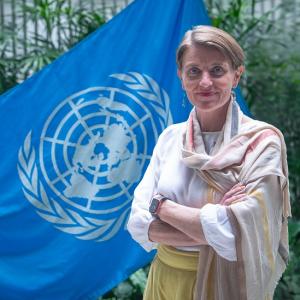Partnering for progress: UN delivers $219 million in development programmes - 2023 Results Report
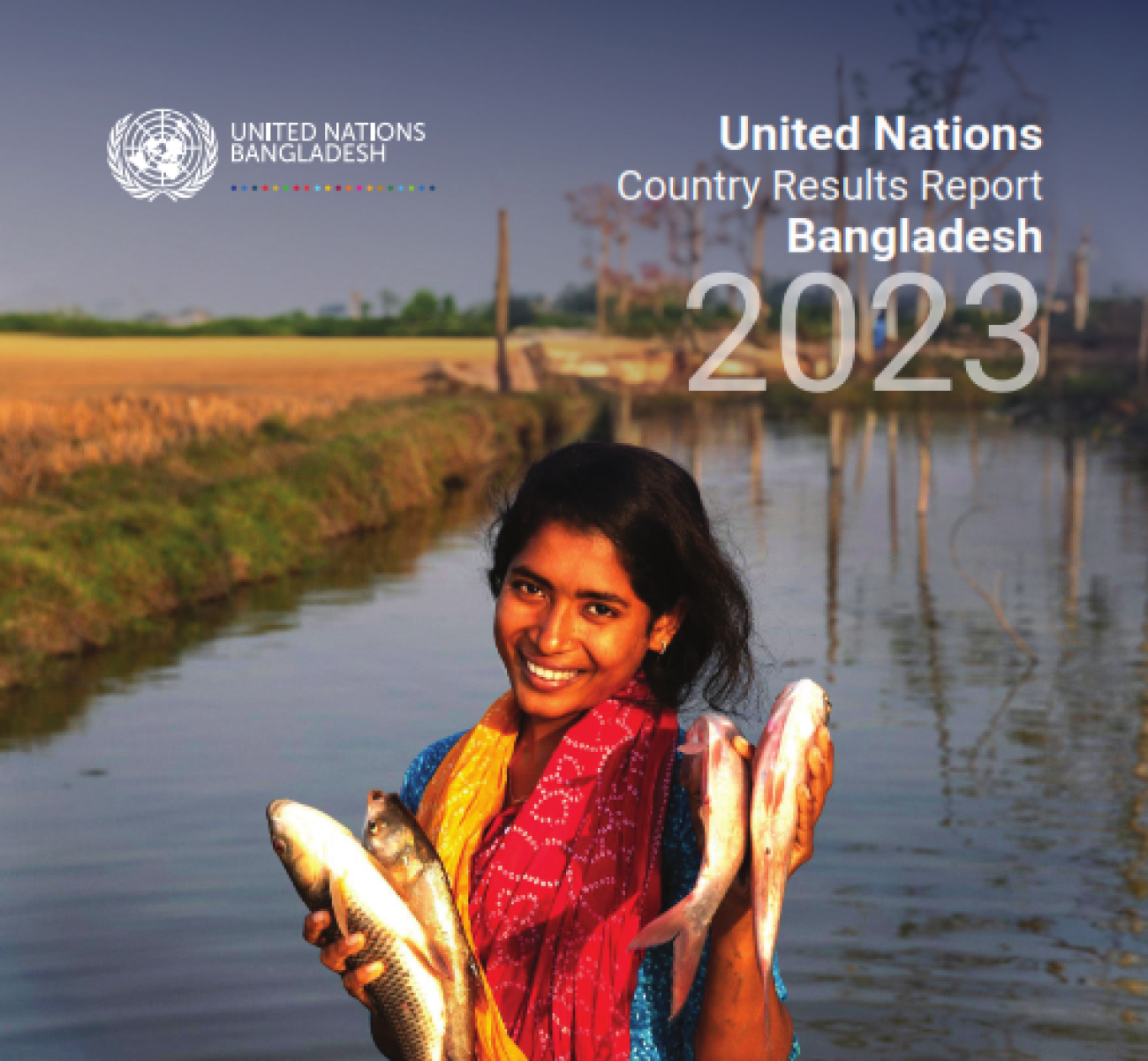
Foreword to 2023 United Nations Country Results Report for Bangladesh,
by Gwyn Lewis, United Nations Resident Coordinator in Bangladesh
19 May 2024
On behalf of the UN Country Team (UNCT), I am pleased to present the 2023 United Nations Country Results Report for Bangladesh, capturing the second year of implementation of the UN Sustainable Development Cooperation Framework, 2022-2026, and outlining the programmes and initiatives, results and impact of the UN’s work to support Bangladesh on the road to 2030.
Bangladesh has much to celebrate in its development journey but remains vulnerable to factors that threaten development gains. The global economic downturn and lingering effects of the COVID-19 pandemic continue to be felt by the people of Bangladesh, notably in high inflation, food and energy prices. Economic growth has slowed, and inequality is increasing. The fragility of the economy is compounded by climate change. Every year, the monsoon season brings wet and dangerous weather to Bangladesh. In 2023, three cyclones crossed the coastline, affecting over 1.5 million people. More than 1.3 million people were caught up in flash flooding in the Chattogram District. Climate change and natural disasters are factors in rising food insecurity and outbreaks of disease; 2023 saw Bangladesh tackle the largest dengue outbreak in its history.
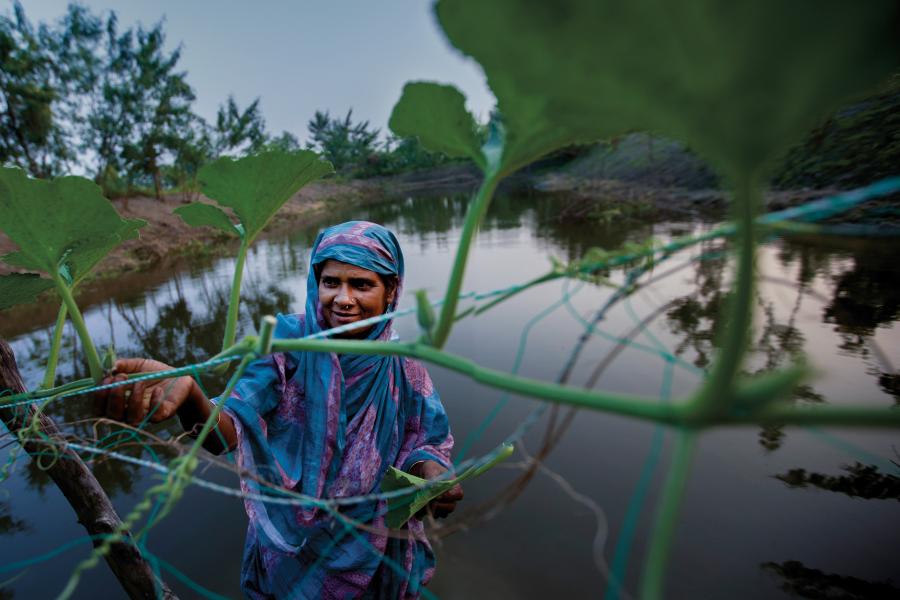
Amid these challenges, Bangladesh continues to tread a promising path towards graduation from Least Development Country status. In 2023, the UNCT provided expertise and advice to support the Government in its preparations for graduation, contributing research, convening partners, and collaborating on policy. Globally, 2023 was an important year for the Sustainable Development Goals, culminating in the SDG Summit where the Government charted a clear course for the 2030 Agenda. With the support of the UN, the Government of Bangladesh held consultations across ministries and stakeholders to develop a set of Country Commitments on the SDGs. At the SDG Summit in September, the Prime Minister presented these 43 commitments on the international stage, the first time that Bangladesh has articulated its priorities around the six key transitions to accelerate the SDGs.
In support of the Government’s vision, the UN in Bangladesh worked across the six transition areas in 2023: jobs and social protection; food systems; education; digital connectivity; energy access and affordability; climate change, biodiversity loss, and pollution. The transitions framework has proven timely for identifying investment pathways and transformative entry points for the UN to align with Government priorities, and the UNCT has refined its prioritization as we shift gears towards more integrated policy support, stronger joint programming, scaled up interventions and innovative financing solutions. In a high-level demonstration of the UN’s commitment, we welcomed the Deputy Secretary-General Amina J. Mohammed to Bangladesh in June. The Deputy Secretary-General took part in consultations on SDG priorities and visited initiatives on jobs and social protection, education, and climate adaptation – key transition areas and some of the critical components of a smooth LDC graduation.

In Khulna, the Deputy Secretary-General saw first-hand the challenges faced by communities in the delta region where rising sea levels and monsoon flooding threaten lives and livelihoods. To strengthen the systems for responding to recurrent disasters, the UN helped to launch initiatives on Anticipatory Action and Early Warning for All. With the Resident Coordinator’s Office, a dedicated interagency team works with the Government and partners on preparedness and response to climate events. In partnership with UN agencies and IFIs, the RCO helped the Government to develop a Disaster Risk Reduction Financing Strategy that will move forward in 2024.
In 2023, the UN continued to roll out large-scale training programmes and support to enterprises to create jobs and build skills, with an emphasis on digital transformation. The Rome-based agencies continued to lend their expertise to the Government to implement a food systems approach, with the International Fund for Agricultural Development investing more than half a billion dollars in 2023 to foster livelihood opportunities for smallholders, grow access to financing and markets and generate rural employment. UN support to education led to higher enrolment rates and stronger curricula to nurture capacities and skills fit for a Smart Bangladesh. New programmes for green and renewable energy transition and access commenced in 2023, aiming to bring more solar and wind power to rural and off-grid Bangladesh. Health remained a major workstream, the most significant in terms of financing? Under the Cooperation Framework.
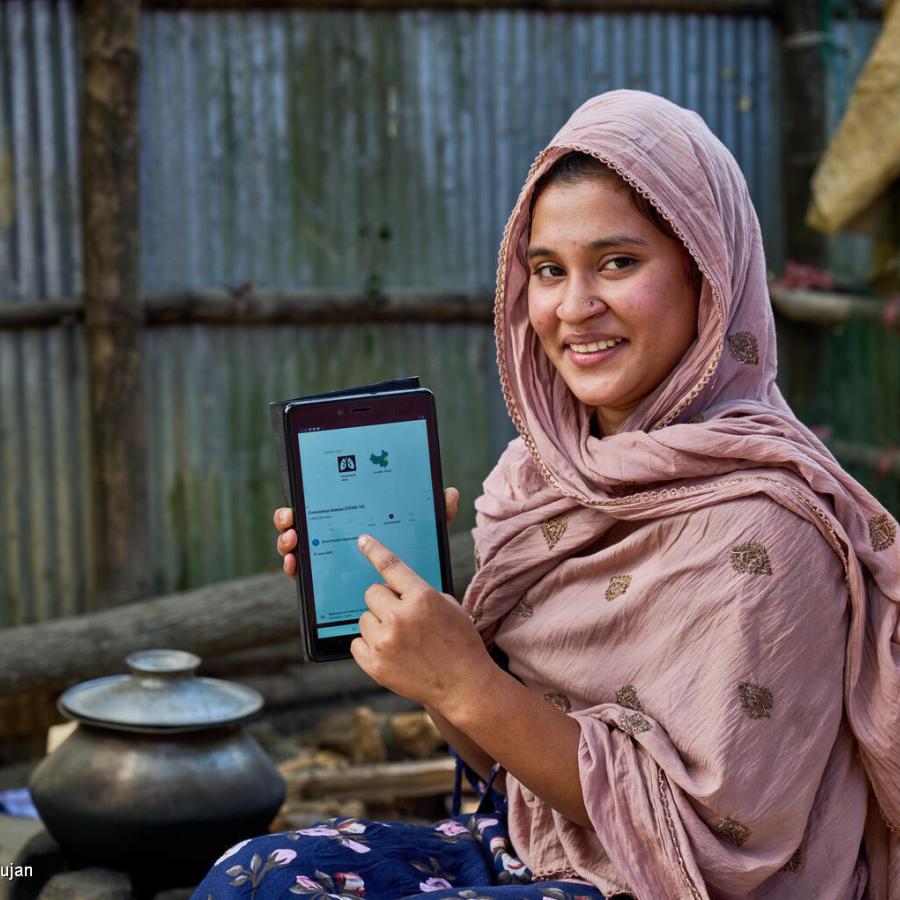
The UN worked with the Government to advocate for establishing Universal Health Care for all Bangladeshis and to integrate health policy and preparedness through the One Health initiative. The UN delivered programmes on access to justice, human rights, labour rights and child labour, maritime security and prevention of trafficking. In 2023, the UN provided ongoing support to the Government’s gender-responsive policies and planning while acting to support more than 267,600 survivors of gender-based violence.
The UN’s policy and programme support has been underwritten by a whole of society partnership approach, with the private sector an important partner, critical to fulfilling the 2030 Agenda. The launch of the Bangladesh Private Sector Working Committee on the SDGs at the end of 2023 was a major milestone.
These are only some of the highlights of the UN’s activities from 2023. Ten of the UN agencies that deliver development programming in Bangladesh under the Cooperation Framework also work to support the Government’s leadership on the Rohingya Refugee Crisis. In 2023, the crisis entered its sixth year, with one million Rohingya people still living in 33 camps in Cox’s Bazar and Basan Char, alongside half a million Bangladeshis in host communities. It was a challenging year for the response. Of the $876 million required under the 2023 Rohingya Refugee Joint Response Plan, just $597 million or 68 per cent was raised. Reductions in funding required a cut to food rations in the camps. The UN will continue to work to keep the spotlight on the crisis and to lend its support to the Government.
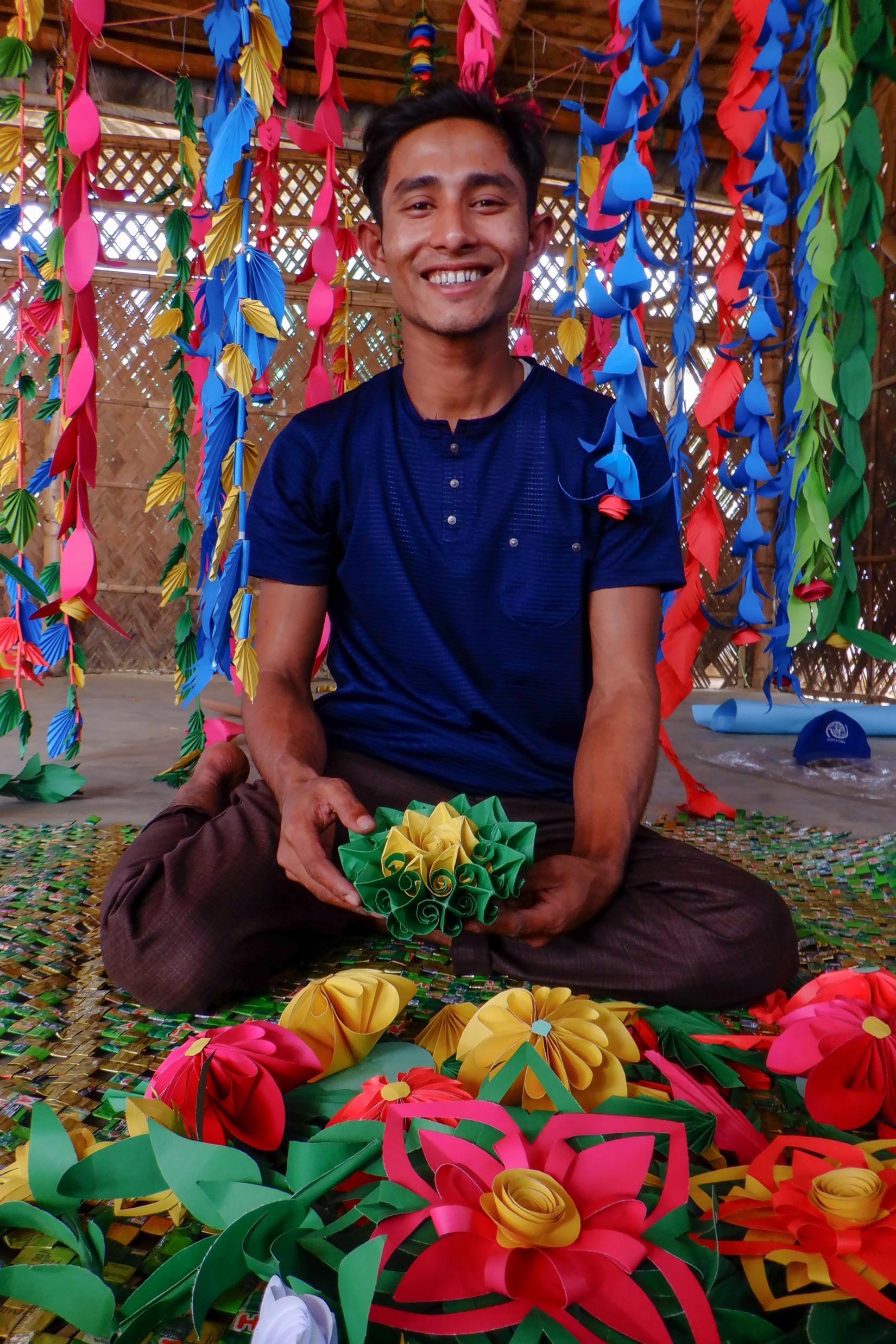
In 2023, I visited the Chittagong Hill Tracts, Sylhet, Khulna, Barisal and Rangpur. I made frequent trips to Cox’s Bazar, both the camps for Rohingya refugees and the surrounding local communities whose lives have been deeply affected by the crisis. Development needs vary widely for the people of this beautiful and diverse country, and climate vulnerability, economic and geographic marginalization present significant challenges.
Overall, the UNCT can report more robustly in 2023 on how it is addressing development needs, thanks to the efforts of the UN team to report comprehensively in UN INFO. Over the five years of the Cooperation Framework, the projected funding requirements stand at $1.143 billion. With thanks to the generous contributions of donors and partners, $693 million had been raised or pledged at the close of 2023. This enabled the UN family to deliver $219 million in development programming in 2023 across the five strategic priorities of the Cooperation Framework. The UNCT also developed a Joint Work Plan (JWP) of 204 activities, a key tool for transparency and coordination, describing the activities that are underway or planned across Bangladesh, detailing implementing agencies and partners, and resources committed and required. The UNCT enhanced the use of the Gender Scorecard in its programming, with over 80 per cent of indicators on the Gender Scorecard now meeting or exceeding requirements. The UNCT also introduced a Disability Scorecard and endorsed a Disability Inclusion Strategy.
Implementation of the Cooperation Framework is tracked through a Results Matrix of 22 indicators. For 2023, data are available for 16 of those indicators, outlined in Chapter 2 of the report. It is encouraging to see progress on key indicators for education and health. The reduction in maternal mortality is a testament to investments in primary and reproductive health care. Elsewhere, progress against selected indicators shows that we have more work to do. A rise in severe malnutrition and wasting, and an increasing trend in child marriage for girls younger than 18, will require focused efforts and a deeper understanding of the drivers behind these trends.
In 2024, the UN will continue to seek to understand these dynamics to inform a multidimensional planning approach as we move to support the Government’s 9th Five-year Plan. On behalf of the United Nations, we are committed to accompanying the Government in the lead-up to 2030 and look forward to continuing our support to accelerate progress towards the SDGs and leave no one behind.
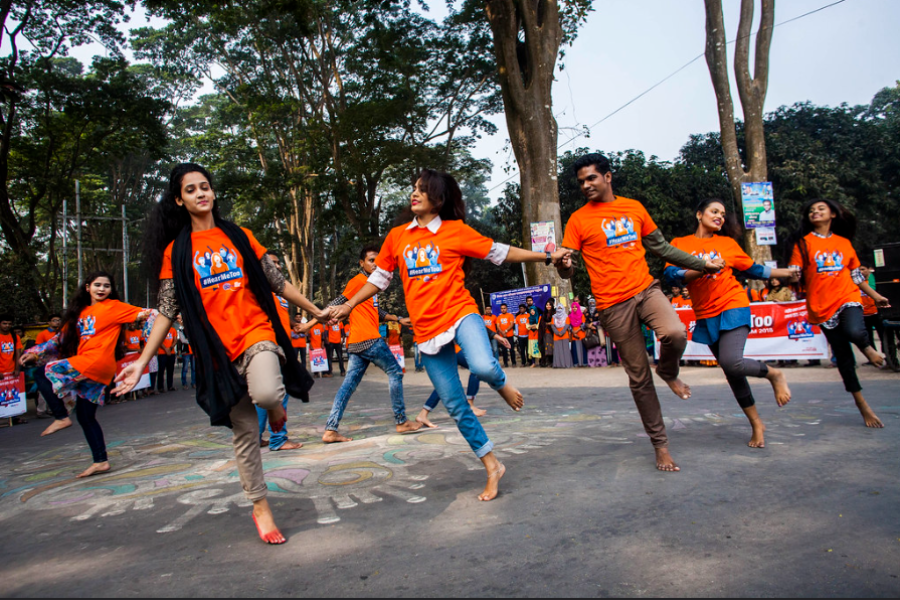
The report can be downloaded from: United Nations in Bangladesh Country Results Report 2023 | United Nations in Bangladesh
Written by
